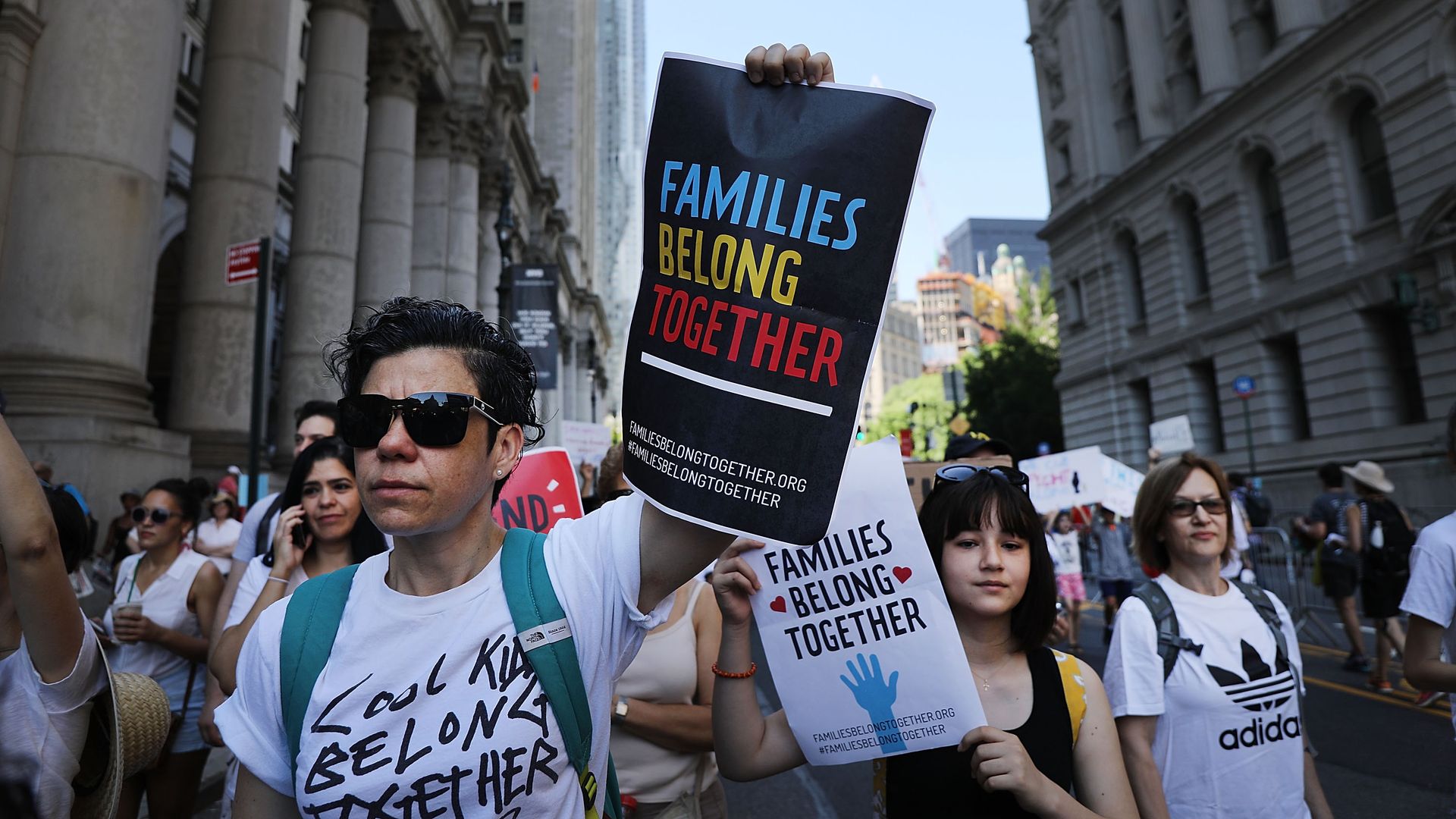Sep 4, 2019 - Politics & Policy
Government watchdog: Separations caused trauma on migrant children
Add Axios as your preferred source to
see more of our stories on Google.

People march in support of separated migrant families in June 2018. Photo: Spencer Platt/Getty Images
